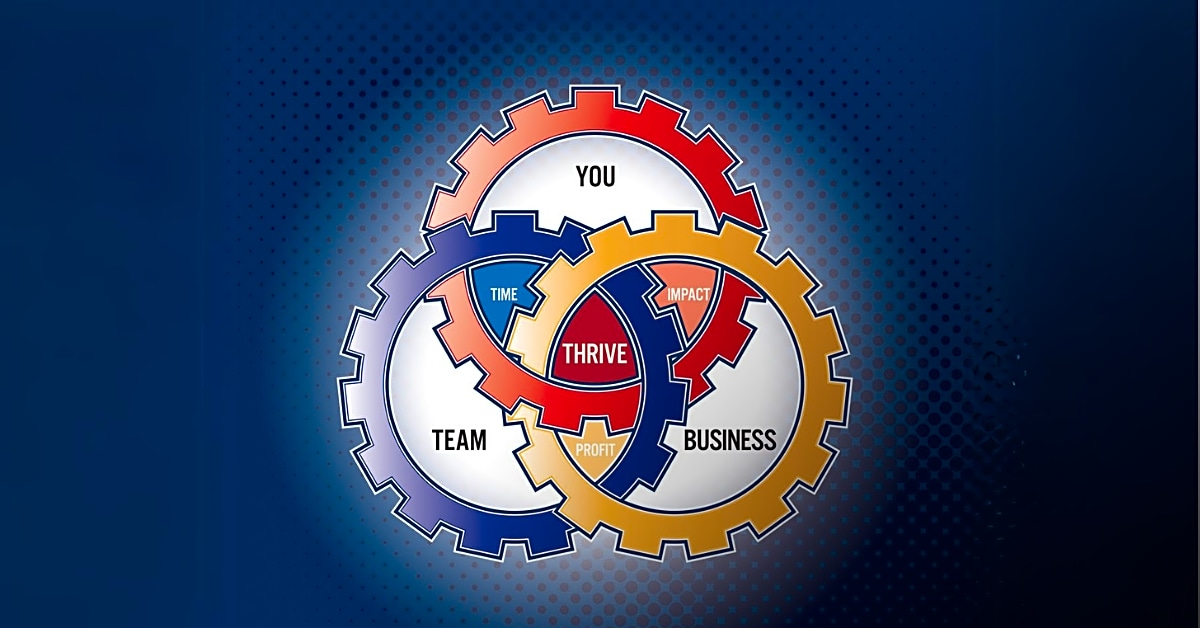The corporate world is filled with titles and positions, each carrying its own set of responsibilities and expectations. Among these roles, the CXOs – CEO, COO, and CFO – hold a significant place in organizations. These executives are at the top of the corporate ladder, responsible for making critical decisions that shape the company’s future.
In this article, we will delve into the world of CXOs and explore their career path, responsibilities, and impact on businesses. Whether you are aspiring to reach these executive positions or simply curious about their role, this article will provide you with a comprehensive understanding of the CXO world.
Join us as we navigate through the intricate roles of CXOs and uncover what it takes to climb the ladder of success in the corporate world. So, let’s begin our journey of understanding the CXO career path and responsibilities.
To truly understand the role of a CXO, it’s important to first explore the career path that leads to this prestigious position. Most CXOs have extensive experience in their industry, often starting in entry-level positions and working their way up through various management roles. They typically possess a strong combination of leadership, strategic thinking, and problem-solving skills. A CXO must also have a deep understanding of their company’s products or services, as well as the needs and preferences of their target audience.
In terms of responsibilities, a CXO is responsible for overseeing the overall customer experience within a company. This includes managing all touchpoints between customers and the brand, ensuring that every interaction is positive and impactful. CXOs also work closely with other executives to develop and implement strategies that improve customer satisfaction and loyalty. They may also be involved in analyzing customer data and feedback to identify areas for improvement and make informed business decisions.
When it comes to skills, a successful CXO must possess strong communication, collaboration, and analytical abilities. They must also be able to think creatively and adapt to changing market trends and consumer behaviors. In addition, CXOs must have a strong understanding of technology and how it can be used to enhance the customer experience.
As for salary, CXOs are among the highest paid executives in any company. According to Glassdoor, the average salary for a CXO in the United States is around $150,000 per year. However, this number can vary depending on the size and industry of the company.
In conclusion, becoming a CXO is no easy feat. It requires years of hard work, dedication, and a unique set of skills and qualities. But for those who are up for the challenge, the rewards can be incredibly fulfilling both personally and professionally.
Responsibilities
The role of a CXO, whether it be CEO, COO, or CFO, comes with a multitude of responsibilities. These executives are responsible for the overall success and direction of the company, and they play a crucial role in shaping its culture and strategy. Their responsibilities include:
- Setting the Vision and Strategy: One of the primary responsibilities of a CXO is to set the company’s vision and strategy. They must have a clear understanding of where the company wants to go and how it plans to get there.
- Leading and Managing Teams: CXOs are responsible for leading and managing teams across various departments. They must ensure that everyone is working towards the same goals and that each department is functioning efficiently.
- Financial Management: As the top financial authority in the company, CXOs are responsible for making financial decisions that will impact the company’s bottom line. This includes budgeting, forecasting, and managing expenses.
- Building Relationships: CXOs must also build relationships with key stakeholders, such as investors, clients, and partners. These relationships are crucial for the company’s success and growth.
- Making Tough Decisions: CXOs are often faced with tough decisions that can have a significant impact on the company. They must be able to analyze data, weigh different options, and make informed decisions.
Career Path
The journey to becoming a CXO is not a simple one. It requires years of hard work, dedication, and a combination of education and experience. Typically, individuals start their careers in entry-level positions and work their way up the corporate ladder. This can involve moving between different departments and taking on various roles to gain a diverse skillset.
As they gain experience and prove themselves, employees may be promoted to managerial positions. These roles involve overseeing teams and projects, and require strong leadership skills. From there, individuals can continue to climb the corporate ladder, eventually reaching executive level positions such as CEO, COO, or CFO.
It’s important to note that there is no set path to becoming a CXO. Some individuals may have a more traditional route, while others may have taken a more unconventional path. However, all CXOs have one thing in common – they have worked hard to get to where they are.
In addition to experience, education also plays a crucial role in the journey to becoming a CXO. Many CXOs have advanced degrees, such as MBAs or other relevant certifications. These degrees can provide individuals with the knowledge and skills needed to excel in the fast-paced and complex world of executive leadership.
Overall, the career path to becoming a CXO involves hard work, dedication, and a combination of experience and education. It may not be an easy road, but for those who are determined and driven, the rewards can be great.
Skills
Qualities of a Successful CXO
The role of a CXO requires a unique set of skills and qualities that are essential for success in the highly competitive world of executive leadership. The following are some of the key qualities that are crucial for a successful CXO:
- Leadership: As the top executive in an organization, a CXO must possess strong leadership skills to guide and inspire their team towards achieving the company’s goals and vision.
- Visionary thinking: A successful CXO must have a clear vision for the future of the company and be able to think strategically to make sound decisions that will drive growth and success.
- Adaptability: In today’s fast-paced business environment, a CXO must be able to adapt to changing circumstances and lead the company through any challenges or obstacles that may arise.
- Communication: Effective communication is key for a CXO, as they must be able to clearly articulate their vision and strategies to their team, stakeholders, and other key players in the business.
- Financial acumen: As a top-level executive, a CXO must have a strong understanding of finance and be able to make informed decisions based on financial data.
In addition to these key qualities, a successful CXO must also possess excellent problem-solving skills, emotional intelligence, and the ability to build strong relationships with stakeholders. It takes a unique combination of skills and qualities to excel in the role of a CXO, but those who possess them can drive their organization towards great success.
Salary Information
When considering a career path as a CXO, one of the most important factors to consider is salary. As top executives, CXOs are responsible for the overall success and profitability of a company. Therefore, they are compensated highly for their expertise and leadership.
The exact salary for a CXO can vary greatly depending on factors such as company size, industry, and location. However, on average, the annual salary for a CXO ranges from $200,000 to $1 million or more. This wide range is due to the fact that CXOs often receive significant bonuses and stock options as part of their compensation package.
According to data from Payscale.com, the average salary for a CEO is around $160,000 per year, while the average salary for a COO is around $143,000 per year. CFOs tend to have the highest average salary out of all CXOs, with an average of around $197,000 per year.
Additionally, CXOs at larger companies tend to earn significantly more than those at smaller companies. For example, a CEO at a Fortune 500 company can earn upwards of $5 million per year, while a CEO at a small business may earn closer to $100,000 per year.
It’s important to note that in addition to base salary, CXOs may also receive other forms of compensation such as bonuses, stock options, and benefits packages. These can greatly increase their overall compensation and vary based on individual performance and company success.
Overall, being a CXO can be a highly lucrative career path for those who are driven, ambitious, and have strong leadership skills. While the responsibilities and demands of these roles are significant, the potential for high salaries and other forms of compensation make it an attractive option for those interested in executive positions.
Being a CXO is a highly coveted position that comes with great responsibility and reward. It takes a combination of experience, skills, and determination to reach this level of success. If you’re interested in pursuing a career as a CXO, it’s important to continuously develop your skills and stay up-to-date with industry trends and advancements.


